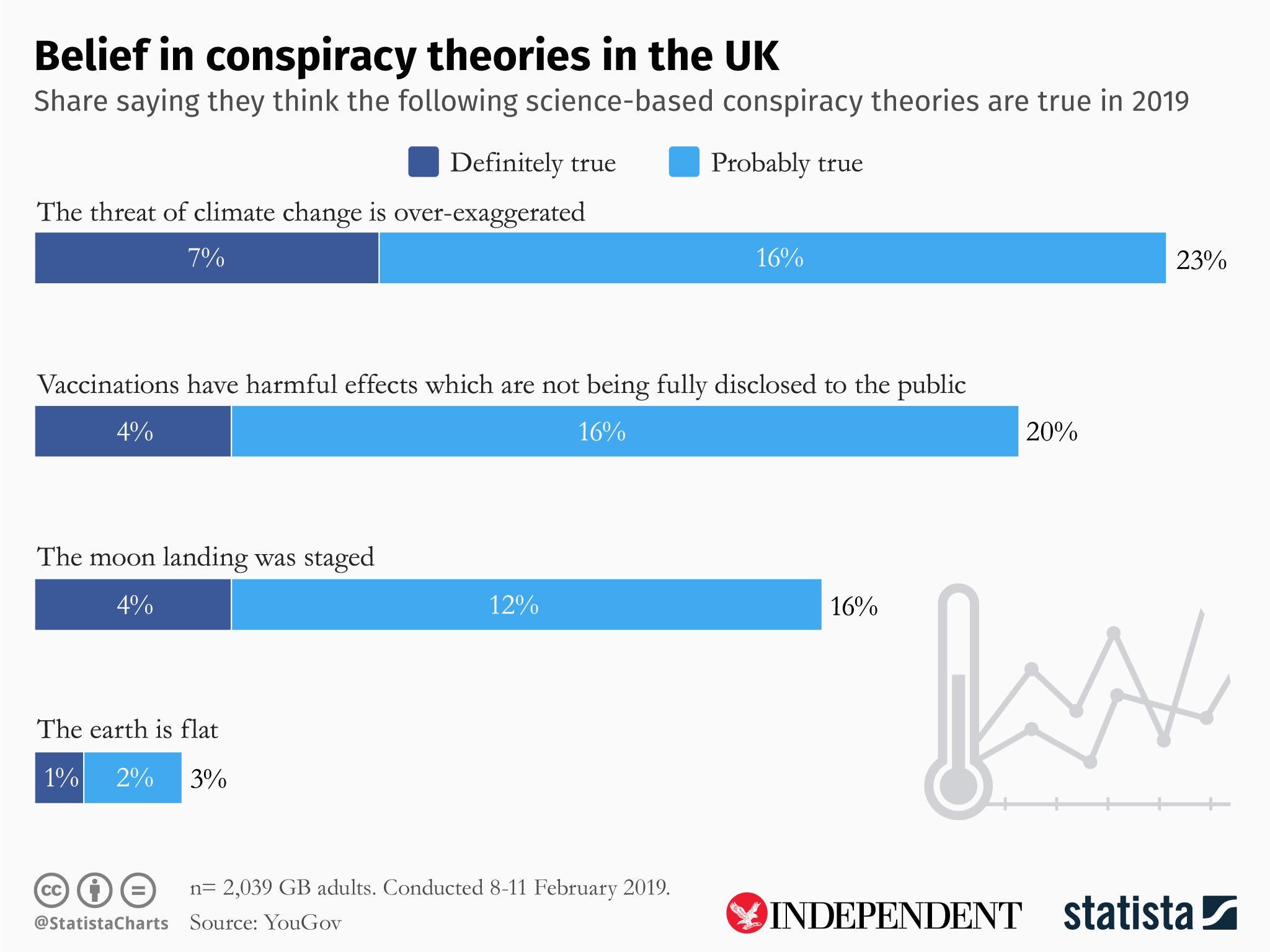The Independent's journalism is supported by our readers. When you purchase through links on our site, we may earn commission.
One in four Britons think climate change threat is exaggerated, study shows
A growing number of people quietly believe in conspiracy theories
Conspiracy theories are far from a new phenomenon but it’s easy to assume they only have a small number of devout believers.
However, new research suggests they are actually more widespread than you might think.
A new survey for the Yahoo/YouGov podcast Britain Is A Nation Of involved asking 2,039 Britons about a number of science-based conspiracy theories, from climate change denial to creationism, and found that a considerable number believe them to be true.
The findings showed that while 70 per cent of Britons think warnings on climate change from scientists are appropriate, 32 per cent of those aged 55 and above believe the threat is over-exaggerated, as do 9 per cent of 18 to 24-year-olds.
Similarly, one in five Britons (20 per cent) said they think it’s probably or definitely true that vaccinations have harmful effects which are not being fully disclosed, despite publicly available scientific research showing they are safe.
One in 20 of those aged 25 to 44 believe it’s definitely true, while just one in 100 of 18 to 24-year-olds agree.
The survey also found that younger respondents were twice as likely to disagree with the theory that vaccinations are harmful.
Two thirds (59 per cent) of 18 to 24-year-olds think that vaccinations are safe compared to a third (34 per cent) of those aged 55 and above.
According to children's charity Unicef, a rising number of infants worldwide are missing out on the measles jab, meaning 21 million a year are at needless risk of infection every year since 2010.
When it comes to whether or not the moon landing was staged, one in six Britons (16 per cent) said it “probably” was while 4 per cent believed it was “definitely” forged.
The survey showed that older respondents are less likely to believe this conspiracy than younger respondents – 38 per cent of those aged 55 or older compared to 50 per cent of 18 to 24 year olds.
This is the only theory for which this age trend is the case. In all other cases, younger people were less likely to believe the conspiracy theories.
The theory that the Earth is flat rather than round was the least popular conspiracy on the survey with just 3 per cent of Britons saying it’s "probably" or "definitely" the case.

Meanwhile, 93 per cent believe it’s false, and 4 per cent claim that they don’t know.
One in seven Britons (14 per cent) said they think it’s probably or definitely the case that the universe was created by God in seven days, and evolution was just part of his creation plan.
Belief in this theory varies only marginally across age groups, with 70 per cent of Britons saying this is definitely false.
Interestingly, men are more likely than women to think so – 77 per cent compared to 65 per cent.

Join our commenting forum
Join thought-provoking conversations, follow other Independent readers and see their replies
Comments
Bookmark popover
Removed from bookmarks